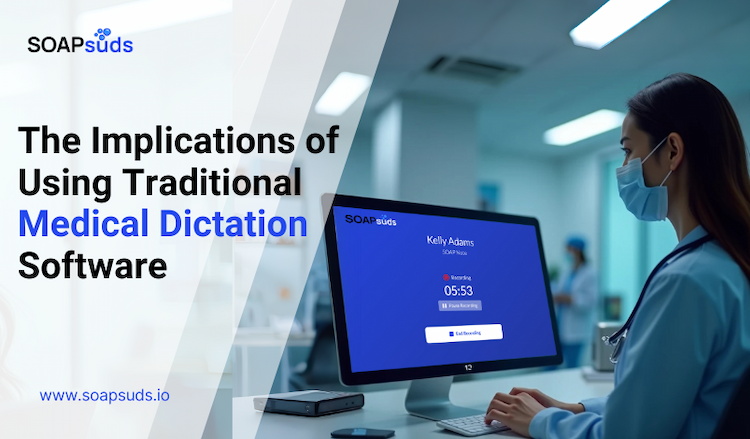The Role of AI Voice Assistants in Advancing Value-Based Healthcare
SOAPsuds team
Published: 6/18/2025
SOAPsuds team
Published: 6/18/2025

HIPAA, the Health Insurance Portability and Accountability Act, is a key regulation that significantly...

Despite significant differences in operations, both private practices and large hospital systems face a common...

Note-taking during psychotherapy and counseling sessions is a common practice that raises important questions...

Artificial Intelligence is quickly advancing, reshaping industries and changing the way we live, work.

Medical scribes have been essential to the healthcare industry for years, supporting clinicians by accurately...

As the healthcare sector continues to face challenges, administrators, executives, and decision-makers are dealing with...
Clinical Notes
SOAP notes
DAP notes
AI medical notes